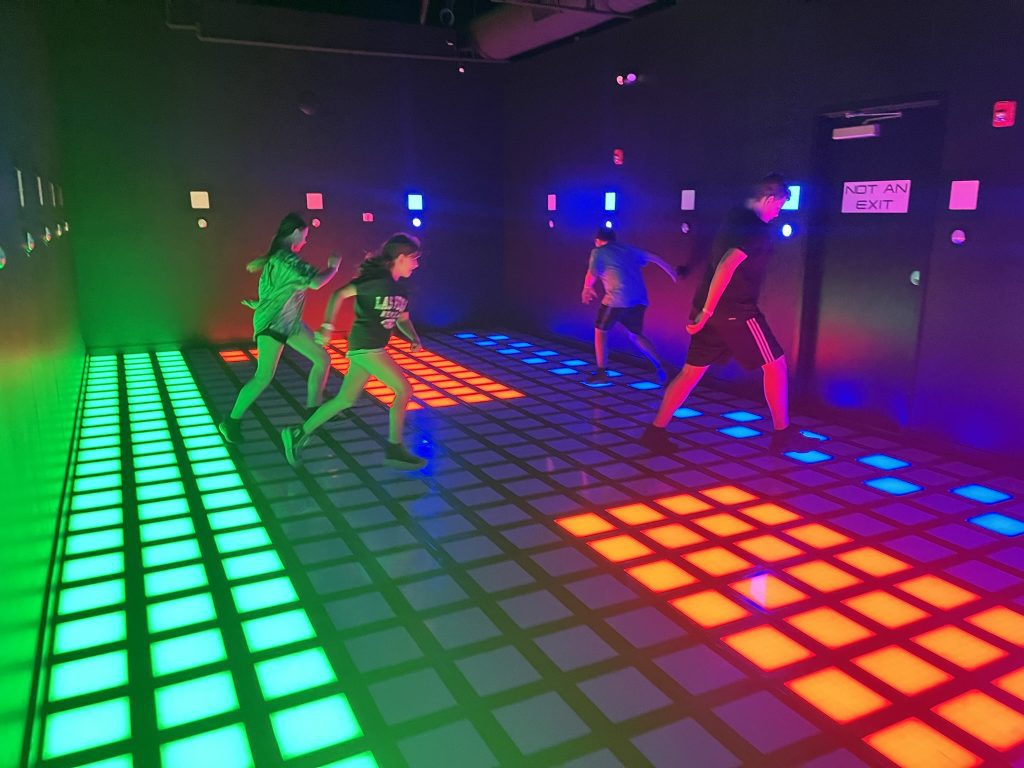The strategic allocation of floor space directly determines venue profitability. Nexus Arena’s Riyadh location initially allocated only 30% space to projection floors, prioritizing traditional attractions like trampolines (85K to $120K within 90 days—a 41% increase driven by three factors: projection floor revenue model
- Throughput Density: Projection zones host 120 players/hour versus trampolines’ 80, with automated session transitions reducing idle time. Each square meter generates **145 for non-interactive attractions.
- Premium Pricing Power: Dynamic experiences command 60/session versus static attractions’ 35. Packages like “Corporate Battle Royale” drive B2B sales at $1,200/event.
- Data Monetization: Anonymous movement analytics sold to sports researchers add $10K/month in B2B revenue without impacting operations.
The retrofit strategy included: projection floor revenue model
- Zonal Sequencing: High-energy zones (laser tag) placed adjacent to medium-engagement areas (puzzle floors) to naturally guide traffic flow
- Peak Pricing Algorithms: Dynamic pricing adjusts from 60/hour (off-peak) via IoT-connected signage
- Membership Tiers: Platinum members ($79/month) receive priority booking and personalized content
ROI analysis shows: projection floor revenue model
- 14-month payback period on $380K investment
- 63% member retention rate versus industry average of 34%
- 22% higher spend per visitor compared to hybrid models
Access our Interactive Venue ROI Calculator to simulate your space’s potential.


